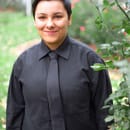It’s October, everyone, and that means it’s Breast Cancer Awareness month! Sometimes, celebrating months like this can seem more like a habit than something important. But the truth comes back to this famous line: “It could happen to you.” No one thinks about that, certainly not for something as major as breast cancer. But the truth remains—it really could happen to you.
According to breastcancer.org, about one in eight women develop breast cancer in their lifetime. So for all you MCLA students out there with a small class size, look around. Two or three of them will have breast cancer in their lifetime. Though it’s more common for women, it isn’t just women. Men can also be positive for breast cancer, so don’t think you’re off the hook! The risk for men having breast cancer is significantly lower (only one in 1,000) yet still there. So, what should you do?
First, look into getting a checkup. For most women, the easiest way is through your gynecologist. If you do not have a OBGYN, are tight on funds or have no insurance, this is the time where you could visit your friendly neighborhood Planned Parenthood.
Planned Parenthood is a well-known place for women’s health. (I know, I know. That place.) But they’re much more than that. I did a little research on my own and was shocked at what I found.
Planned Parenthood offers a vast variety of services, including checkups, educational information, birth control, general health care and STI testing. All of these services are available for people anywhere on the gender and sex spectrum. For breast cancer specifically, Planned Parenthood offers two services—mammograms and breast exams.
If your doctor doesn’t find anything in a breast exam but thinks something still may be wrong, that is where the mammogram comes in. It has a scary name, but it isn’t that bad. Ever had an x-ray, maybe for teeth or a broken bone? It’s the same thing, only for your breasts.
You can also do a breast exam to yourself at home. There have been a lot of things said recently about self-done breast exams, whether or not to do them and if they’re even accurate. Some say that no one knows your breasts as well as you do. “But research about breast exams has found that they may not be that helpful, so they are no longer recommended,” according to Planned Parenthood’s website. Once you are over the age of 20, it is recommended that you see a professional once every one to three years. Once you are around the age of 40 and up, you should try to be seen at least once a year. That’s easy enough!
But above all else, remember that breast cancer is genuine concern. Medicine and technology have come a very long way; doctors and places like Planned Parenthood can help you. Don’t be afraid to ask for help, no matter where or who you are. There will always be someone there for you.



